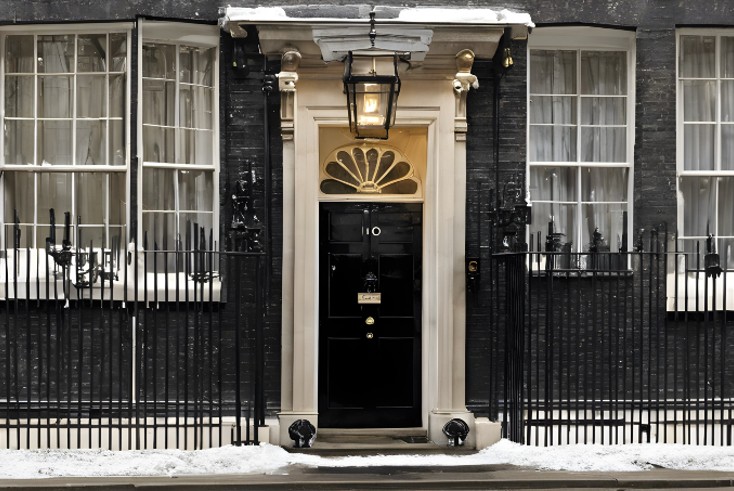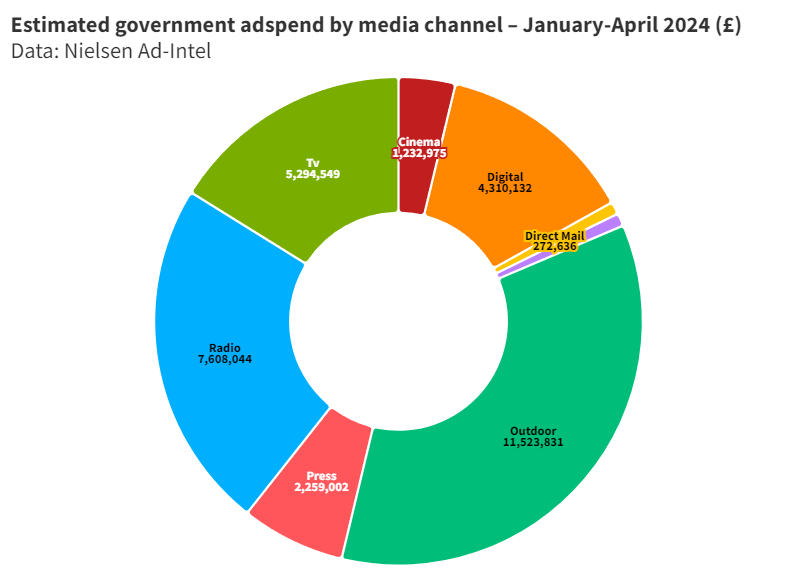£50m in government adspend put on hold amid pre-election period

Now that the UK government has entered the pre-election period, adspend will be significantly curtailed until a new cabinet is seated.
According to WPP media agency Wavemaker, which handles around 80% of the government’s media planning, the government had previously intended to spend an estimated £50m on advertising between the end of May and September.
That has now mostly been put on hold.
‘Apolitical’ ads
The Media Leader understands that, while the general rule is to disallow the government from advertising during the pre-election period, not all spend is necessarily off-limits. It is plausible, according to Oli Halliwell, Wavemaker managing partner and government lead, that some campaigns can go ahead if they could be reasonably construed as apolitical, such as recruitment for the armed services.
As this article was published, the civil service had not yet commented specifically on whether such campaigns can go live during the pre-election period. The Media Leader understands that the Army, for example, had been eyeing spending during the Euros tournament, which takes place in this period, to target its TV audience in particular.
Of the estimated £50m in adspend on hold, roughly two-thirds were considered by Halliwell to be plausibly usable by the next government, regardless of which party is elected come 4 July. The remaining one-third is attributable to campaigns more specific to the sitting government’s agenda and is therefore most at risk of being dropped.
Manning Gottlieb OMD, the agency in charge of ad buying for the government under the OmniGov division, declined to comment.
Major advertiser
The government is one of the country’s largest advertisers. During the Covid-19 pandemic, it was in fact the biggest, as it sought to communicate various public-health and safety measures. According to Nielsen figures seen by The Media Leader, in 2020 the government spent over £186m in advertising.
One trade body representative told The Media Leader that government adspend is not going to “disappear” and will likely be recouped later in the year and “it’s not massive” in the grand scheme of total annual adspend. However, in the short term, “it’s a factor”, especially as media industry stakeholders were caught off guard by an earlier-than-expected call for a general election.
According to Halliwell, when rumours circulated in March that prime minister Rishi Sunak was about to announce a May election, Wavemaker was asked to move spend originally planned for later in the year into spring in order to get campaigns across the line before the April pre-election period. Then, when the May vote did not materialise, the agency — like much of the industry and, indeed, the wider country — assumed a late-autumn election instead.
That, in turn, caused spend originally planned for the autumn to be brought forward into the summer months — and this will now have to be put on hold.
“[The] election has been sprung upon us,” said Halliwell.
Effect on different channels
According to Nielsen Ad-Intel figures seen by The Media Leader, in January-April the government spent an estimated £32.8m on advertising, with the primary beneficiary being OOH (£11.5m), followed by radio (£7.6m).
However, Wavemaker warned that the figures do not provide the full picture, in part because it does not count all civil service spend (for example, Public Health England is excluded), nor any spend on social media. The agency itself estimates that the government’s annual spend since 2019 (excluding spikes in expenditure during 2020 and 2021 amid the pandemic) has been £100-120m, of which around one-fifth is typically spent on digital advertising.

Will spend habits change?
Halliwell described a “heightened sensitivity” currently “to ensure the government is perceived as unbiased”.
“This is a particularly cautious pre-election period,” he said.
How the next government will look to utilise advertising is an open question. According to Halliwell, traditionally Labour has spent more on communications than the Tories.
For him, the earlier election is nevertheless reason for excitement from an advertising perspective, because Wavemaker had been “slightly more cautious with our [government] campaigns” so far in 2024 because of the lack of clarity of when the election would be called.
But with a new government, regardless of which party wins, it will be “exciting to have new ideas and priorities” to communicate to the public, Halliwell offered, adding: “We can be braver.”



